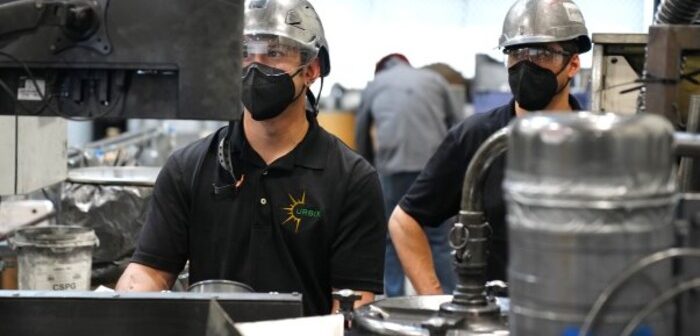USA-based environmentally responsible graphite processor Urbix has signed a joint development agreement with EV battery developer and manufacturer SK On (SKO) that will see the companies co-develop industrialized anode materials for SKO’s advanced lithium-ion batteries used in its US gigafactories.
The recent agreement will boost Urbix’s plans to establish a commercial US anode production facility with the capability to manufacture 28,500 tons of anode products per annum by 2025. The projected capacity will be able to power 350,000 high-performance EVs produced in the USA. Furthermore, for SKO, the agreement strengthens a local supply chain for battery anode materials in the USA.
SKO currently has two US battery manufacturing plants in Georgia, with the second scheduled to come online in 2023. A joint venture between SKO and Ford, BlueOval SK, is constructing three battery manufacturing plants, one in Tennessee and two in Kentucky. The three facilities are scheduled to begin operations in 2025.
Urbix’s process for graphite processing is stated to be faster, more efficient and significantly less carbon intensive than conventionally used processes. The company’s approach uses just 10% of the energy, 6% of the acid and 7% of the time. Additionally, the process eliminates the use of hydrofluoric and hydrochloric acid, and yields more than 70% – over twice the industry standard. Furthermore, Urbix’s method is agnostic to raw graphite source enabling a highly resilient EV anode supply chain.
“Working with such a renowned battery manufacturer means that we can accelerate our production efforts, and more effectively address the supply of graphite,” said Nico Cuevas, CEO, Urbix. “By utilizing Urbix’s innovative technologies, we can shift more of the refinement and production of battery-grade graphite to the US, a mission we remain committed to.”
“This agreement is meaningful in increasing the possibility of securing eco-friendly and high-performance anode active materials for use in SK On’s US plants,” explained Heeyoung Sun, vice president in charge of advanced research, SK On. “SK On will continue to work to develop anode materials that can maximize battery performance.”


